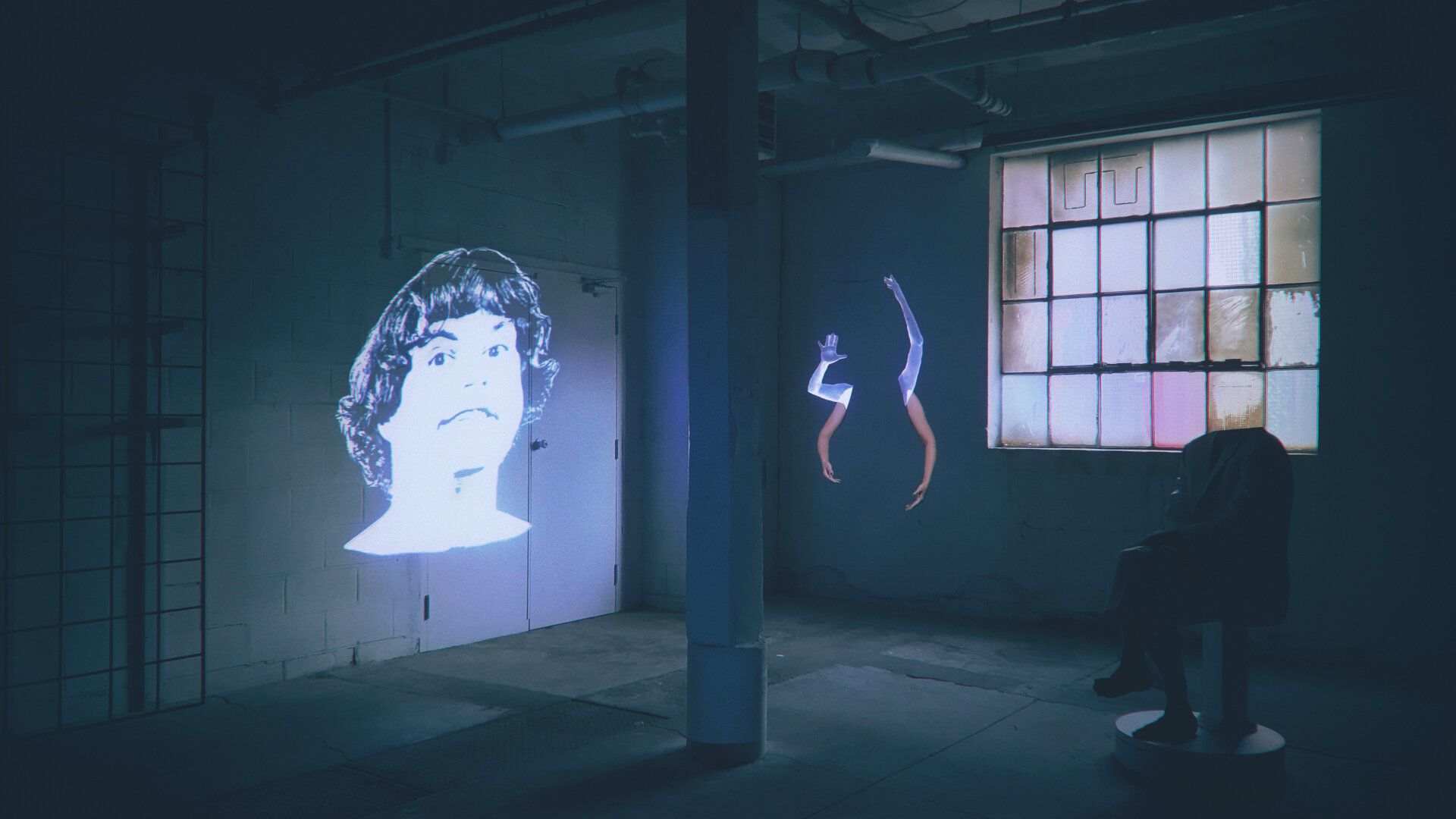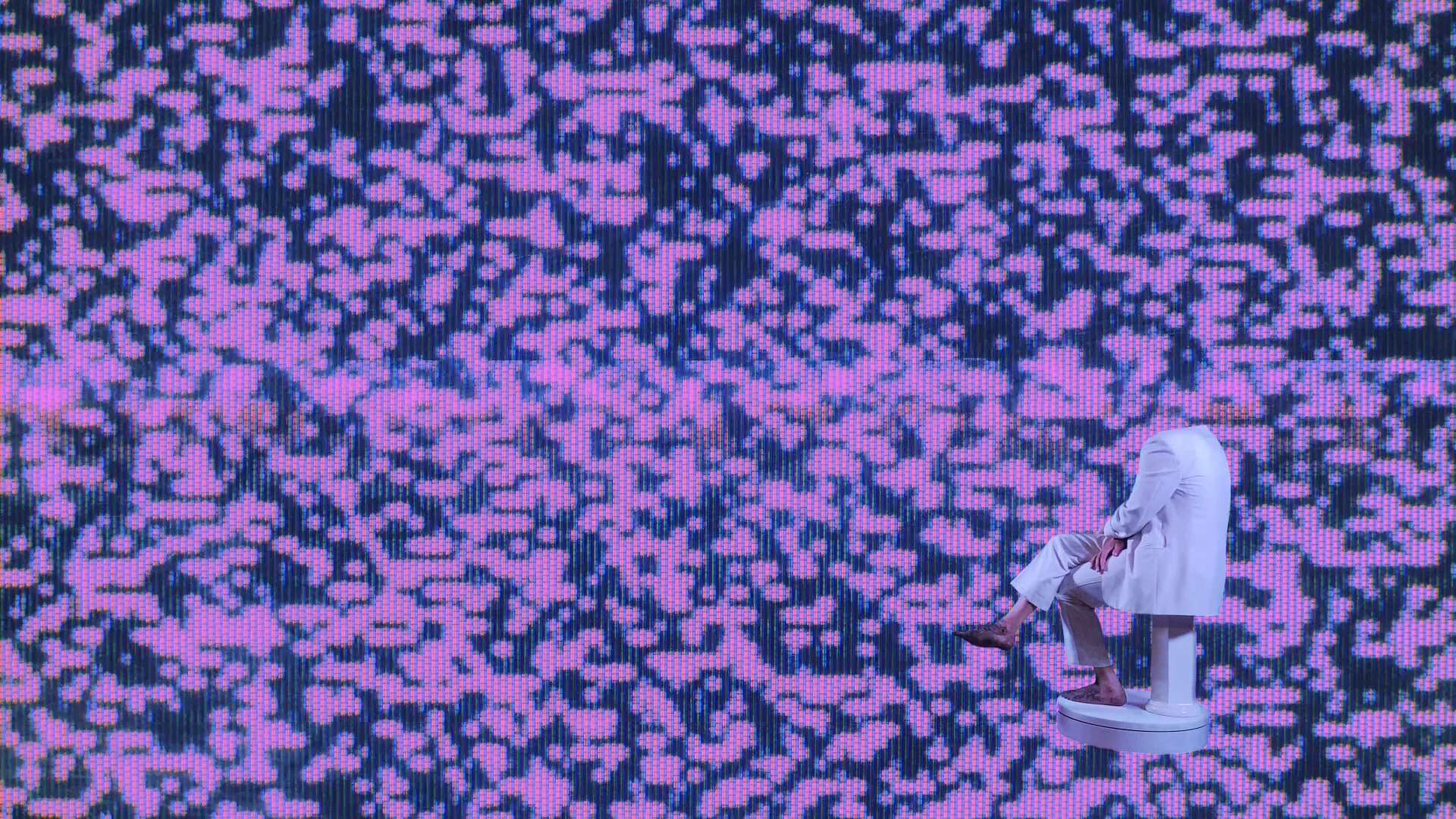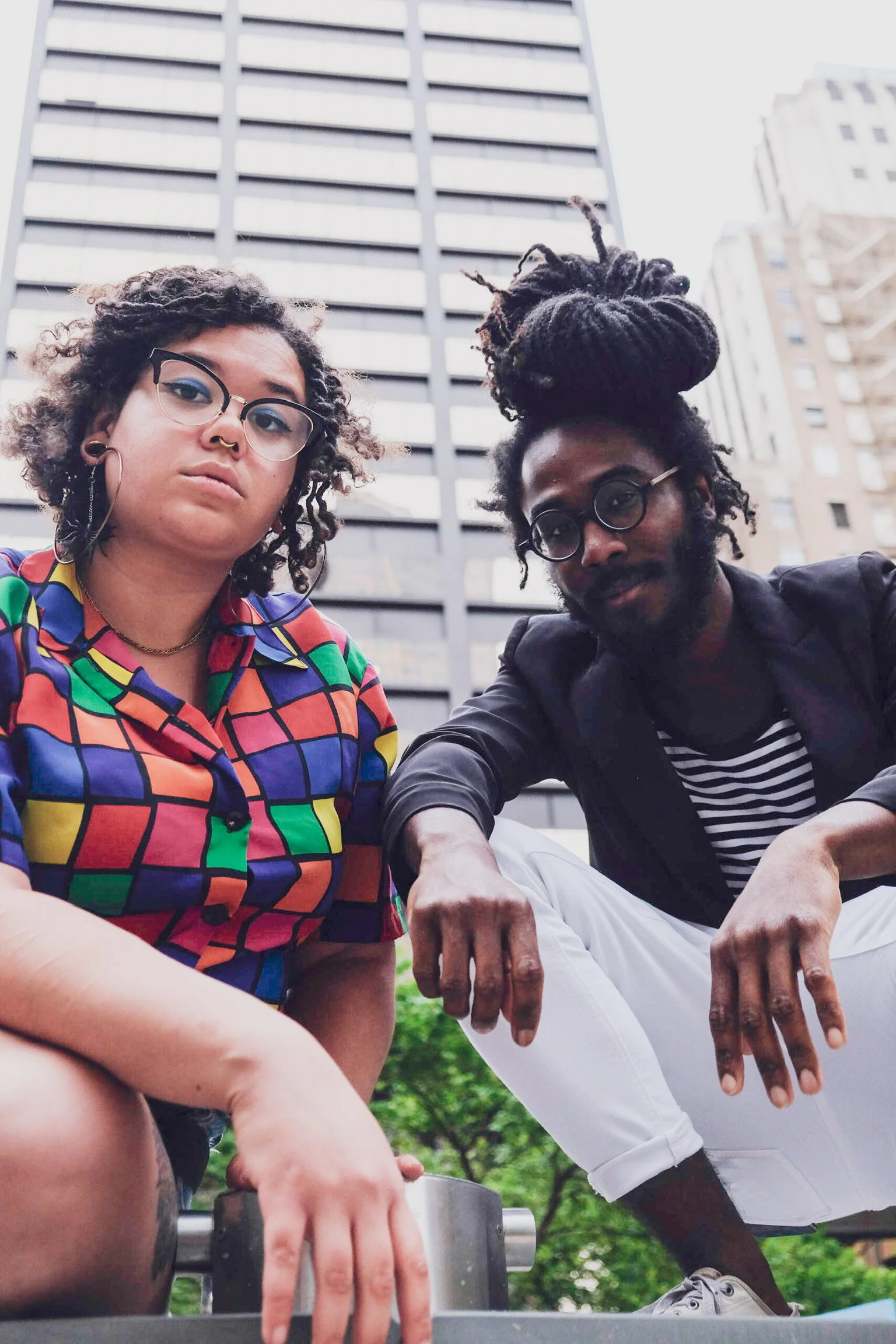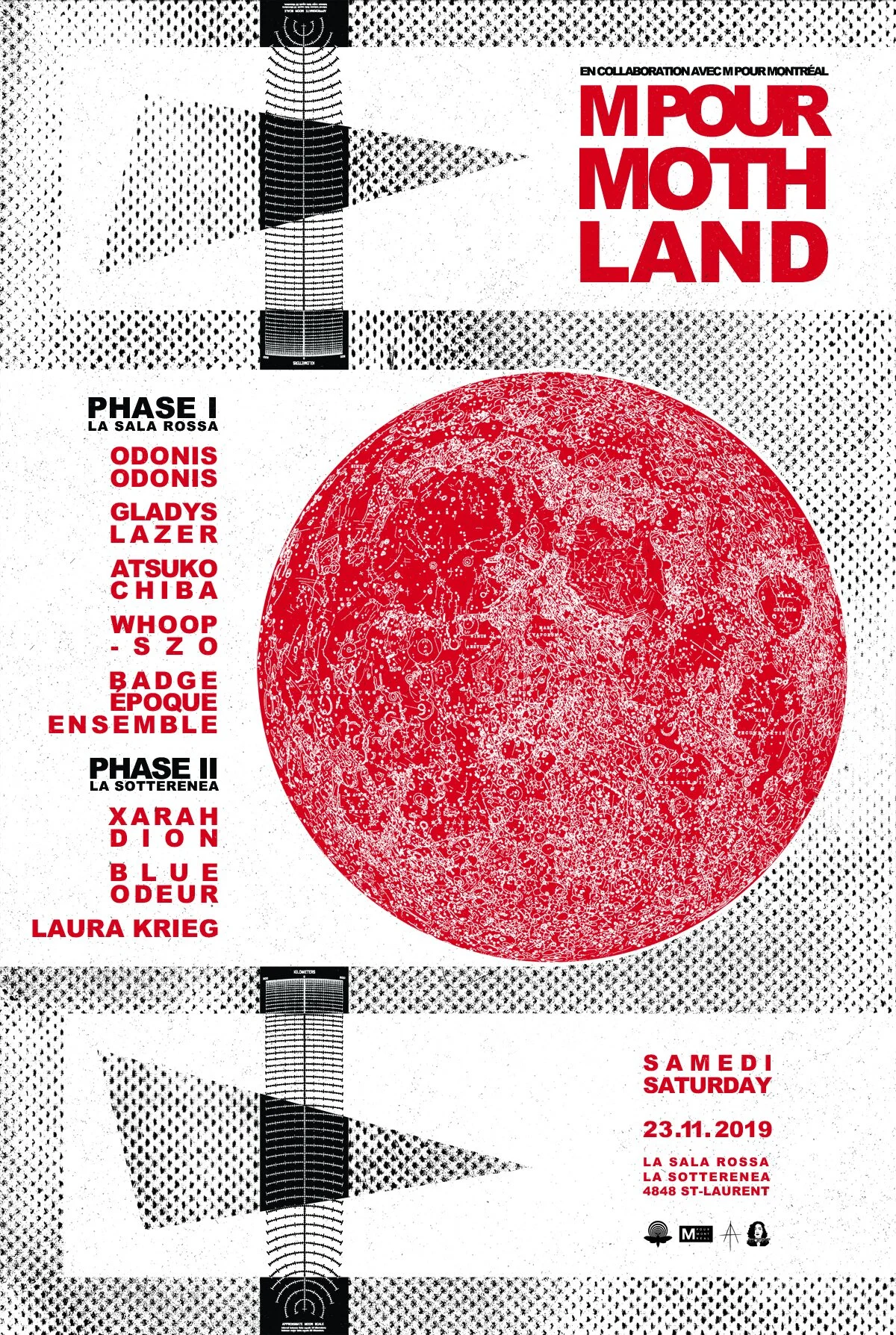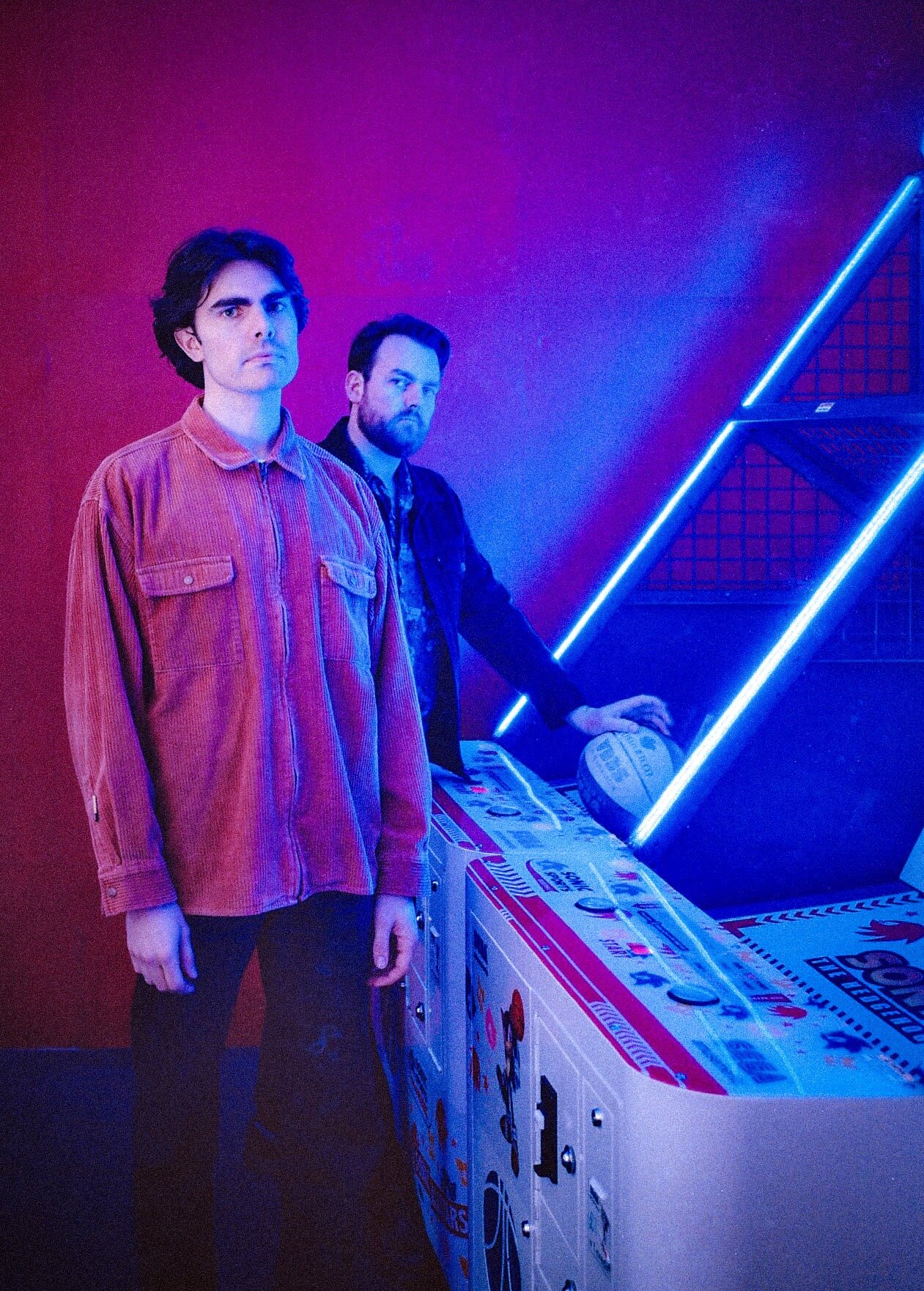Premiere: DECOUPLR Drifts Through the Now with "Digital Bonfire"
Digital Bonfire by DECOUPLR is out now. Cover art: Jake Beadenkopf
Looking for something a little different? Philly-based duo DECOUPLR have released their debut album Digital Bonfire, and the result is a sound that sticks.
DECOUPLR is the product of two unique musical histories. Vocalist Bailey Walker got her start in Savannah, GA with Rich Animals, and joined neo-soul group Likebirds after finding her way to Philly. Producer Adam Laub is a long-time staple of the Philadelphia scene, releasing indie-pop as a member of OhBree and trip-hop as <radioaddict>, among other projects.
With Digital Bonfire, the listener moves through the pair’s influences and bears witness to their cohesion. Digital Bonfire is a trip-hop-infused product of the pandemic and all the feelings it’s drawn out – uncertainty, nostalgia, confusion. Walker describes debut single “Cold Sweat” as “...an intersection of the whirling uncertainties of this year colliding with a desire to be vulnerable with our closest friends.” On the second single “Changes,” DECOUPLR continues to fight the mundanity of isolation with vivid longings for tomorrow.
Fans of Sylvan Esso and Flying Lotus will want to take a listen to what DECOUPLR’s been cooking. Let Digital Bonfire remind you to find hope beyond the Zoom screen… and take a read of our interview below!
Rebecca L. Judd for Also Cool: The pandemic’s impact on the album was incredibly pronounced. A standout track for me was the opening, “Keepsake”, which [highlights] this theme throughout the album where there are these mundane reflections of immobility and disenchantment over chaotic piano arpeggios and production.
Was it your intention to reflect the present times in your album, or did that come about naturally?
Adam Laub for DECOUPLR: It definitely was. A few of the tracks, we started a month or two before the pandemic hit. But they also happen to [just] be about being distant from people that you haven't seen in awhile, just by chance. And then, as soon as this all hit and we were all stuck inside, it quickly became this is the moment, this is where it should go.
Bailey Walker for DECOUPLR: I remember when we first started writing, the content was very about being lonely, and I had reservations – do we really want to come out with such a bummer album? Over the course of time, [we felt] like this is content that people can relate to. This is what a lot of people are feeling. So it's good to share.
Also Cool: What utility – as artists or as people, members of your community – does making the “COVID album” serve you in this time?
Bailey: I think that [it’s about] creating a conversation and an ability to connect with people during COVID. Creating like this, ever since March, we all started redefining what our community is and building our communities, especially online. To me, [this] feels like self-expression, but also an opportunity for conversation with people about things that [they] are not normally willing to open up about immediately.
Adam: It's been [part of] a lot of the lyrics. [The] concepts were about letting people know that it's okay to reach out to someone and talk to someone if you need to, especially during this kind of time. There was definitely a focus on that.
Bailey: But the privilege of getting to make music during a time like this, it's also not lost on me either. I have all these feelings, sure, but this is a collective struggle, you know? So it's for everyone.
AC: Absolutely. It's just interesting to see people use [artistry during COVID] not only as something to unite their fans, but to reorient themselves. It's like a keepsake. It's something tangible [where] you can say it's the same sort of memory as a photo album.
Bailey Walker and Adam Laub of DECOUPLR. Image provided by DECOUPLR
AC: Looking at your musical histories, both of you have been involved in so many projects before DECOUPLR. Digital Bonfire reflects that, and it touches on a whole lot of genres. Has there been anything notable that's stuck with you from these musical projects?
A: I would say definitely. The genreless thing is big for me; all the projects I've been in have been pretty genre-absent. And I like being able to jump in between stuff like that. Also, I like a lot of glockenspiels with arpeggiators. You could probably find that on almost every track on this album, if you listen hard enough. It's always there. I promise you. [laughs]
B: I was going to say “glockenspiels''! But every project I’ve been in has also been a genreless, “we don't know what's going to happen” project. Having somewhere where I can just vocally run around in circles and play in [a] space is great. The whole genreless thing has worked out for me pretty well.
A: I would also say, in general, the projects that I've worked on – including with DECOUPLR – have always been concept albums, even if we don't explicitly say it. So it's just something about having a flow or a narrative [that] has always stuck with me. And even if it's not a sticking point of the album – I think that for me, having that concept in the background has always helped to stitch things together in the end and make it make sense.
AC: That's true. So many artists will either put a completely different story on the page – because it lets them leave their stuff at the door – and for others, art is just an open diary.
I wanted to talk about the “Changes” video, because I thought that [video] reinforced this contrast between the chaotic instrumentals to it all and these reflections of loneliness and wanting to be understood. Hallucinatory animations and the longings for those colours in your own life. [Let’s] talk more about that collaboration process for the video with SUPERVOID.tv.
A: I’ve been working on and off with [SUPERVOID.tv] on different projects for years. We did an electronic music record label that [had], God, some of the early beats that I made out there. Then, we kind of fell off and hadn't worked on anything for a few years, but Drew and Keppler and the rest of [them] started this new studio because they wanted to move. Drew did a lot of lighting design and then stage. They started moving into visuals, and we'd been talking about doing something like this for a long time and it just clicked.
It was easy to work with them. We'd never done anything like that. And, you know, [as] someone who is not a visual artist, it was mind-blowing to see how they could make two people sitting next to a tree seem so intriguing and emotional. They literally filmed us for like about 10, 15 minutes… and they did take the time to hand-draw, frame by frame. So, thank you very much SUPERVOID.tv It’s an awesome video.
AC: “Punchline” was another track I wanted to ask about. It intrigued me for its change in narrative [and emotion], relative to the rest of the album. That post-chorus of cacophonous “ha”s, that’s been stuck in my head. Could you elaborate on the intentions of that track and how it fits into that [Digital Bonfire] kaleidoscope?
B: With any disorienting mess that you go through, there's always this “aha!” moment, this moment of clarity where you say “...oh, I'm still breathing. I have all my fingers and toes.” “Punchline,” the lyrics, the melody, the little ditty came to me in this moment of just needing to take a second to find humour in a very humourless situation. And I drew from influences like Kate Bush and the silly abandoning of reality that she does. “Punchline” acts as a sigh of relief, a little bit.
A: We also wrote it [when] we were at the height of the Trump administration. And the rest of the album was a bit about personal feelings towards all this stuff. We needed to talk a little bit about how our country is killing half a million people – but try to make it a little bit light and danceable, I guess. There was definitely a point in the pandemic where it all [sounded] like a big joke on us and they were going to pull it back and it was the Truman Show. But sadly, that's not reality.
AC: How has your local music scene shaped your musical approach? What do you like about the Philadelphia music scene, or is there anything that you wish could change?
A: I've just found a lot of loving, caring people in this music scene. We've done shows all over the place, but I don't feel like I see the same kind of community… [We have] this huge scene with so many people who don't seem to shut smaller and newer artists out. I've just felt a lot of acceptance here, and it's why I've stuck around and done so much.
B: Savannah is a great city, and there’s lots of artists there and a lot of important movements happening there right now. I felt the same thing when I got to Philly, I would take myself to different open mics and local shows ... And the people, they just want to talk to you. People want to know what you have going on.
AC: Final question: with Digital Bonfire out [today], is it too early to ask about next steps, or anything you’d like to plug?
A: We actually have another music video by SUPERVOID.tv for the first single “Cold Sweat.” With the timing of things, we thought it'd be better to wait until the album's out. With this album, I pulled a lot of beats that I've had in folders for years. I've got a lot more of those. So it's only a matter of time before we've got new music yet again…
I’d like to plug the person who helped us with our album art and graphic design – Jake Beadenkopf. He [also] helped us with all of our fonts and texts.
DECOUPLR
Website | Instagram | Twitter | Facebook
Bandcamp | Spotify | Soundcloud | YouTube
Listen to Digital Bonfire, out now on all streaming platforms.
Rebecca Judd is the features editor of Also Cool Mag.
This interview has been condensed and edited for clarity.

































